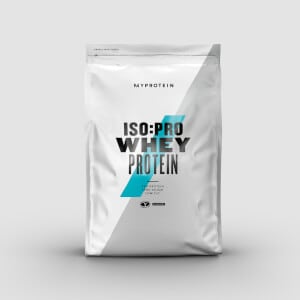Whey protein is a pretty popular source of protein nowadays for bodybuilders and diet followers. Let’s read about it more!
What is Whey Protein?
Whey protein is the protein contained in whey, the watery portion of milk that separates from the curds when making cheese.
The protein is used for improving athletic performance, as a food supplement, as an alternative to milk for people with lactose intolerance, for replacing or supplementing milk-based infant formulas, and for reversing weight loss and increasing glutathione (GSH) in people with HIV disease. It is also used for protein allergy, asthma, high cholesterol, obesity, weight loss, preventing allergies in infants, late-stage cancer, and colon cancer.
Types of whey protein-
The highest-quality forms of whey protein include-
- Whey protein concentrate- This is commonly used in protein drinks and infant formulas, and it has between 25 and 89 percent protein. It’s also sometimes added to protein bars and baked goods.
- Whey protein hydrolysate- Hydrolyzed one is often the version used in sports drinks, nutritional products, and infant formula. It contains between 80 and 90 percent protein. and
- Whey protein isolate- This has the highest percentage of protein, at 90 to 95 percent. It’s mostly used in nutritional products, such as drinks, bars, and other supplements.
Whey Protein nutritional facts-
The following nutrients involve in a three-scoop serving of whey isolate protein powder: =
- Calories: 309
- Protein: 50 g
- Fat: 1 g
- Carbohydrates: 25 g
- Fiber: 0 g
- Sugar: 1 g
- Calcium: 600 mg
- Iron: 1 mg (5.55 percent DV)
- Magnesium: 200 mg (50 percent DV)
- Phosphorus: 500 mg
- Potassium: 750 mg (15.96 DV)
- Sodium: 320 mg
- Zinc: 7.5 mg
- Vitamin C: 30 mg (50 percent DV)
- Cholesterol: 10 mg
Merits of adding Whey Protein to your diet-
Athletic Performance- Most research on healthy young adults who strength train shows that taking whey protein increases strength and muscle mass. Taking whey also appears to improve running speed. It also aids in recovery from exercise in untrained adults.
Red, itchy skin (eczema). Research shows that infants who consume whey by mouth during the first 3-12 months of life have a lower risk of developing red, itchy skin by the age of 3 years.
Prone allergies and allergic reactions (atopic disease). Research shows that infants who consume whey by mouth during the first 3-12 months of life are less likely to be prone to allergies and allergic reactions compared to infants who receive standard formula. However, taking the supplement might not be helpful for treating atopic diseases once they develop.
Weight loss in people with HIV/AIDS. Some research shows that taking whey by mouth can help decrease weight loss in people with HIV.
Red, scaly skin (psoriasis). Some evidence shows that taking a specific whey extract (Dermylex Advitech Inc.) daily for 8 weeks can reduce psoriasis symptoms.
Ineffective under the three cases below –
- A lung disease that makes it harder to breathe (chronic obstructive pulmonary disease or COPD). Some research shows that taking a whey supplement daily for 6 weeks can improve shortness of breath in people with COPD. But not all research agrees.
- Also, Bone loss in people taking drugs called corticosteroids. Research suggests that taking a drink containing whey daily for up to 2 years does not improve bone density in postmenopausal women with osteoporosis.
- Most research suggests taking whey supplements alone, along with diet modifications. Or while following an exercise plan does not seem to reduce weight for overweight and obese adults. However, whey supplements might improve body composition in overweight adults when used along with a modified diet. In overweight teens, drinking a whey protein beverage for 12 weeks seems to increase weight and body mass index (BMI).
Side effects-
It is LIKELY SAFE for most children and adults when taken appropriately. High doses can cause some side effects such as increased bowel movements, nausea, thirst, bloating, cramps, reduced appetite, tiredness (fatigue), and headache.
Dosage-
The following doses have been studied in scientific research
By mouth-
- For improving athletic performance: 1.2-1.5 grams/kg of protein in combination with strength training for 6-10 weeks.
- For HIV/AIDS-related weight loss: 8.4-84 grams of whey per day, or 2.4 grams/kg per day in a high-calorie formula, or 42-84 grams per day in a glutamine-enriched formula.
Recipe ideas using whey protein –
- Banana Protein Shake
- Oatmeal shake
- Peanut butter cookies
- Protein banana pancakes
- Protein pancakes using whey powder
Get started with your Weight Loss Journey today and take a step towards a healthy lifestyle! Stay tuned for inspiring Weight Loss Journeys, and Delicious Recipes! Also, don’t forget to follow us on Instagram for the daily dose of Health, and Wellness content!








